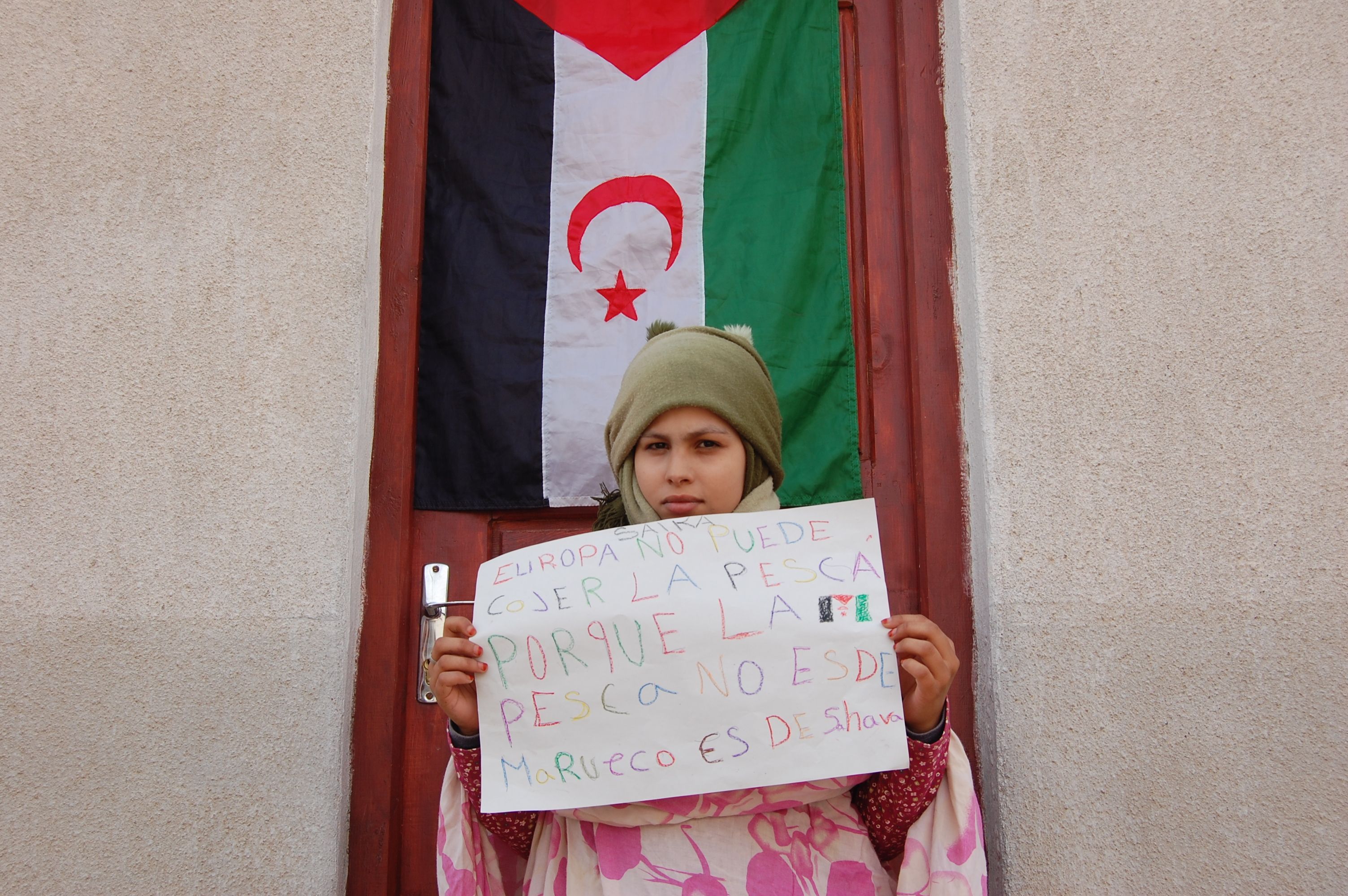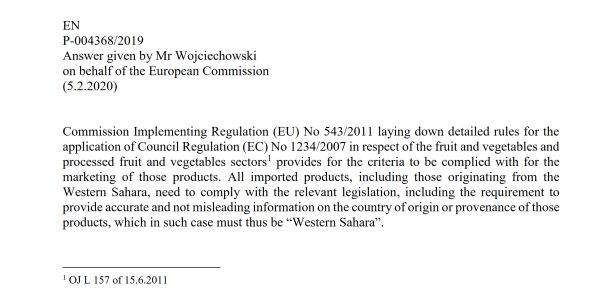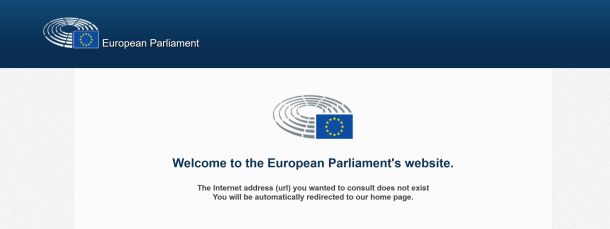
La branche "Affaires étrangères" de l'UE affirme aux États membres et au Parlement européen que le mouvement de libération du Sahara Occidental ne veut pas se réunir pour discuter d'un nouvel accord de pêche UE-Maroc au Sahara Occidental. Le Polisario a exprimé dans une lettre au SEAE sa profonde frustration devant cette déclaration mensongère.
Une réunion malhonnêtement décrite par la suite comme un "exercice de consultation", une demande soudaine et non détaillée de se réunir avec un préavis de deux jours et une demande de réunion - après qu'un accord sur le Sahara Occidental ait déjà été conclu avec le Maroc - afin d'expliquer à quel point il serait bénéfique. Qu'est-ce que le SEAE vise en s'adressant ainsi à la représentation sahraouie ? C’est l’essentiel d’une récente lettre du Polisario au SEAE, dont WSRW a reçu copie le 26 novembre.
Ces dernières semaines, Vincent Piket - chef de la division Maghreb du SEAE (département des affaires étrangères de l'UE) - a déclaré à plusieurs reprises que le Front Polisario (la représentation reconnue par l'ONU du peuple du Sahara Occidental) n'avait pas répondu à sa demande de participer à une série de consultations sur l'inclusion proposée du Sahara Occidental occupé dans l'accord et le protocole de pêche UE-Maroc. Après l'arrêt de la Cour de justice de l'Union européenne en février 2018 statuant que l'application de l'accord de pêche UE-Maroc au Sahara Occidental constituait une violation du droit international, en particulier du droit à l'autodétermination, la Commission européenne a négocié un nouvel accord avec le Maroc. Sans impliquer le peuple du Sahara Occidental dans ces discussions, la Commission et le Maroc ont paraphé en juillet 2018 un nouvel accord de pêche qui s'appliquerait explicitement au Sahara Occidental.
Le SEAE affirme à présent au Parlement européen et aux États membres de l’UE qu’il a contacté le Polisario à plusieurs reprises et que ce dernier n’a pas répondu.
Une lettre du 21 novembre 2018 adressée à Vincent Piket par le représentant du Front du Polisario auprès de l'UE, Vincent Clarket, explique pourquoi le Polisario n'a pas rencontré le SEAE au sujet de cet accord et montre également que M. Piket ne fournit pas de compte rendu complet au Conseil et au Parlement européen.
La lettre relate les tentatives du Polisario pour garder le contact avec le SEAE. "Peu de temps après les décisions de 2016 et 2018, le Front Polisario a pris contact avec le Conseil pour discuter, en accord avec les décisions de la Cour, des négociations permettant la conclusion d'un accord avec l'Union européenne pour le développement du territoire, dans la perspective de signer un accord avec un mouvement de libération nationale comme cela a été fait avec l’OLP. Nous n’avons reçu aucune réponse ", commence la lettre.
Par la suite, une réunion tenue à l’initiative du Polisario en février 2018 a été utilisée par le SEAE pour donner l’impression que le Polisario avait pris part à leur exercice de consultation sur la proposition d’extension de l’accord commercial UE-Maroc au Sahara Occidental. Le 14 juin 2018, WSRW a révélé la communication entre le Polisario et le SEAE, montrant que le SEAE n'avait pas du tout mentionné son agenda de consultation.
Lorsqu'en juin 2018, le SEAE a proposé de rencontrer le Polisario dans le dossier pêche avec un préavis de deux jours, le Polisario a répondu qu'il s'agissait d'un préavis très court et avait demandé plus de temps. Aucune réponse n'est venue du SEAE.
Après avoir conclu un nouvel accord de pêche avec le Maroc en juillet 2018, le SEAE a convié le Polisario à une réunion afin de lui présenter les principaux points de cet accord et ses bénéfices pour le Sahara Occidental.
Lisez la lettre complète ci-dessous (ou téléchargez-la ici).
Dear Mr. Vincent Picket,
It has often come to my knowledge recently that, on several occasions, you have questioned the Frente POLISARIO for not responding to your invitations.
What is all this really about?
Shortly after the 2016 and 2018 Decisions, the Frente POLISARIO contacted the Council to enter, in conformity with the Court decisions, into negotiations that would allow the conclusion of an agreement with the European Union for the development of the Territory, with the prospect of signing an agreement with a National Liberation Movement as was the case with the PLO.
We did not receive any response, which made it clear to us that we were moving towards the circumvention of the Court decisions. In so far as the only question at stake was the respect for the consent of the People of Western Sahara, the refusal of the European authorities to answer our request was abundantly revealing. We could have stopped there.
However, out of our genuine commitment to dialogue, the Frente POLISARIO once again requested a meeting with the Commission. During this meeting, which took place on 5 February 2018 and in which you participated, we expressed clearly our concerns. This being a unique opportunity, we explained our understanding of the law and reiterated our readiness for negotiations to express the consent of the Frente POLISARIO on behalf of the People of Western Sahara as well as our refusal to be consulted on the “benefit of the populations”. However, we were very surprised to see, in a document issued by the Commission, the name of our Movement in a list of NGOs that were "consulted" about "the expected benefits for the populations".
It was then on 4 June 2018, on the eve of the transmission of its report to the European Parliament proposing to extend the EU-Morocco agreements to the Territory of Western Sahara that the Commission requested to meet with us between 6 and 8 June. The proposed deadline seemed very short, especially given the lack of elaboration. With only very partial information, we responded by asking for more time and underlining that we were in a dialogue and that we could not accept any approach that would reverse the four principles identified by the European Union Court of Justice. Our position was clear; there will be no future outside the framework defined by the law. We also stated in our letter that "a consultation meeting should be based on an agenda, rather than a mere desire for information".
To date, we have not received any response. It was only after the initialing of the fisheries agreement by the EU and Morocco that the Commission sent us two requests for meeting in August and September stating that it intended to present to us the main points of the agreement which "is largely inspired by a concern for a fair distribution of the associated benefits, both socially and geographically".
In this way, it was not a matter of consent or consultation, but of providing information about a signed agreement, which violates our fundamental rights with this irrelevant reference to "profits". Furthermore, our abstention was as clear as our constant positions.
Under these circumstances, and bearing in mind all the difficulty surrounding this issue and the current challenges, I must convey to you that I regret these statements questioning our Movement, statements that seem to be somehow contaminated by controversy.
As far as it is concerned, the Frente POLISARIO maintains the highest esteem towards the European institutions, and stands ready for a dialogue that is in line with the expectations of our People, the respect for the Court decisions and the challenges and constraints that the European institutions have to deal with.
Yours Sincerely,
Mohamed Sidati,
Minister, Representative of Frente POLISARIO to Europe
La Commission de l'UE recule sur l'étiquetage des produits du Sahara
Quelle est la position de l'UE sur l'étiquetage des produits du Sahara Occidental occupé ? La Commission européenne a publié pour la troisième fois une réponse à une question parlementaire sur le sujet, mais la dernière version ne répond pas à la question.
Pourquoi cette déclaration de l'UE continue à disparaître ?
Une clarification de la Commission Européenne sur l'étiquetage des produits du Sahara Occidental a été publiée, puis supprimée, puis publiée à nouveau et a été supprimée à nouveau des sites Internet de l'UE.
Confirmation: les produits du Sahara Occidental à étiqueter comme tels
Il y a deux semaines, la Commission européenne a annoncé que les produits du Sahara Occidental doivent être étiquetés comme tels, pour retirer cette déclaration dès le lendemain. Aujourd'hui, la Commission réaffirme sa position initiale.
Retournement spectaculaire de la CE sur l'étiquetage du Sahara
Le 5 février 2020, la Commission européenne a annoncé que les produits du Sahara Occidental devraient être étiquetés en conséquence. Mais environ 24 heures plus tard, toutes les traces de cette déclaration ont été supprimées des sites Web de l'UE.



